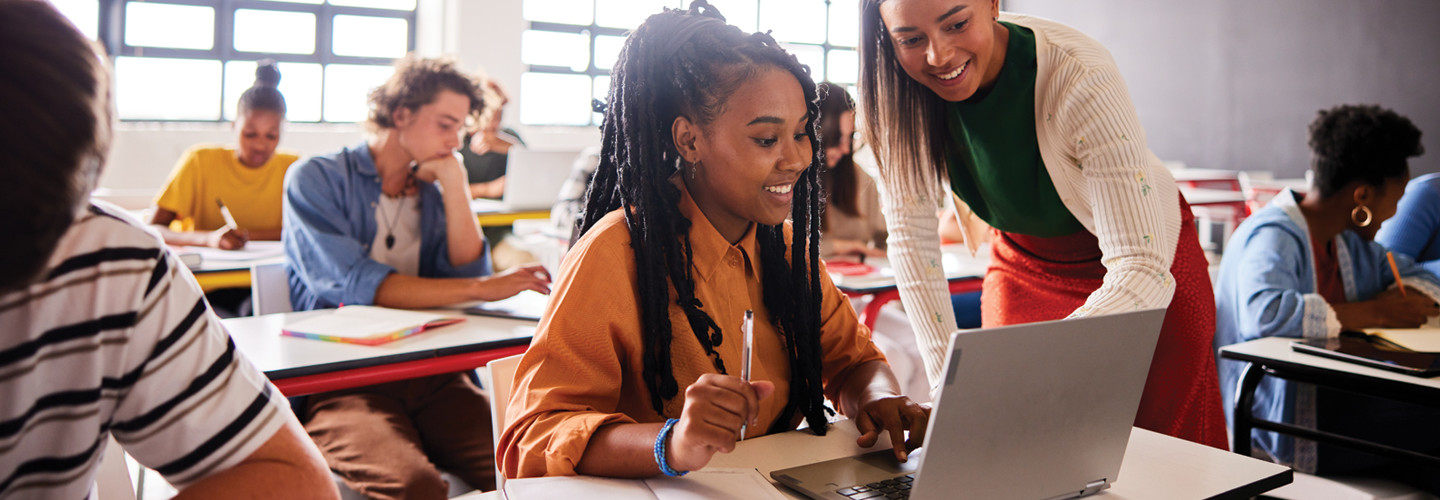CCJ In Heng Insights
Explore the latest trends and insights across diverse topics.
Tech Trends That Are Revolutionizing the Classroom Experience
Discover the game-changing tech trends reshaping classrooms and empowering the future of learning. Don't miss out on the revolution!
How Artificial Intelligence is Transforming Personalized Learning in Classrooms
Artificial Intelligence (AI) is revolutionizing the educational landscape by enabling personalized learning experiences tailored to individual student needs. With the ability to analyze vast amounts of data, AI systems can assess a student's learning style, pace, and preferences. For instance, platforms like Edutopia highlight how AI can adapt content delivery, ensuring that lessons are engaging and accessible for every student. This transformation allows teachers to focus more on facilitating discussions and nurturing creativity, while AI handles the intricacies of differentiation.
Moreover, AI-powered tools provide real-time feedback, which is critical for personalized learning. For example, intelligent tutoring systems can detect a student's grasp of material and offer tailored assistance instantly. Research from Education Corner emphasizes that this immediate feedback loop not only helps students stay motivated but also allows teachers to monitor progress more effectively. As AI continues to evolve, its role in customizing education promises to enhance learning outcomes, making it a vital component of modern classrooms.

The Rise of Augmented Reality: Enhancing Student Engagement and Understanding
The rise of augmented reality (AR) technology is transforming educational environments by significantly enhancing student engagement and understanding. By integrating AR into the learning process, educators can create immersive experiences that go beyond traditional teaching methods. For instance, through the use of AR applications, students can visualize complex concepts, such as 3D models of biological structures or historical events. This interactive approach not only captivates students’ attention but also fosters a deeper understanding of the subject matter, leading to improved retention of information.
Moreover, the accessibility of AR tools means that student engagement can be achieved across various learning styles and environments. Whether in the classroom or from the comfort of home, students can access augmented content that is tailored to their individual needs. According to a study by EdTech Magazine, schools incorporating AR have reported higher levels of motivation and collaboration among students. As we continue to embrace technological advancements, the integration of augmented reality into education is undoubtedly paving the way for a more engaging and effective learning experience.
What are the Top Tech Tools Revolutionizing Classroom Collaboration?
In today's fast-paced educational environment, tech tools are transforming how students and educators collaborate in the classroom. Tools like Google Classroom allow for seamless organization of assignments and communication, while platforms such as Microsoft Teams integrate chat, video calls, and file sharing in one place. These tools foster a more inclusive atmosphere, where students can work together on projects regardless of their physical location.
Additionally, collaboration tools like Padlet and Slack encourage creative brainstorming and real-time feedback among peers. With features that support multimedia sharing and task management, these platforms enhance engagement and productivity. As classrooms evolve, utilizing these innovative tech tools will undoubtedly improve not just collaboration but also the overall learning experience.